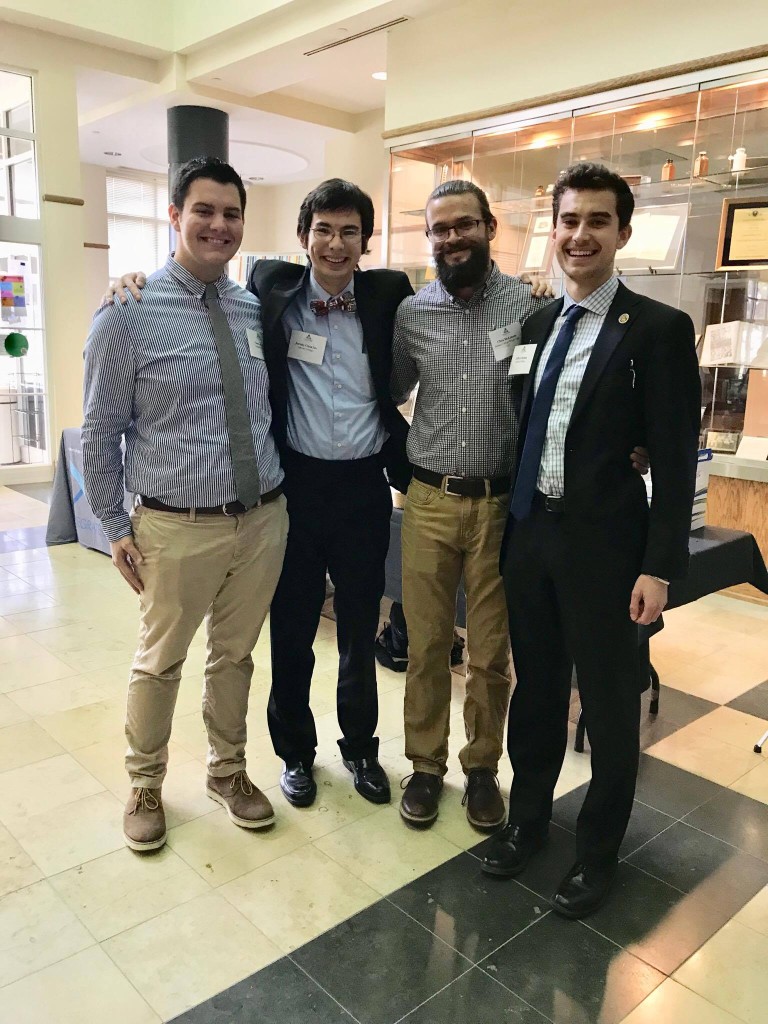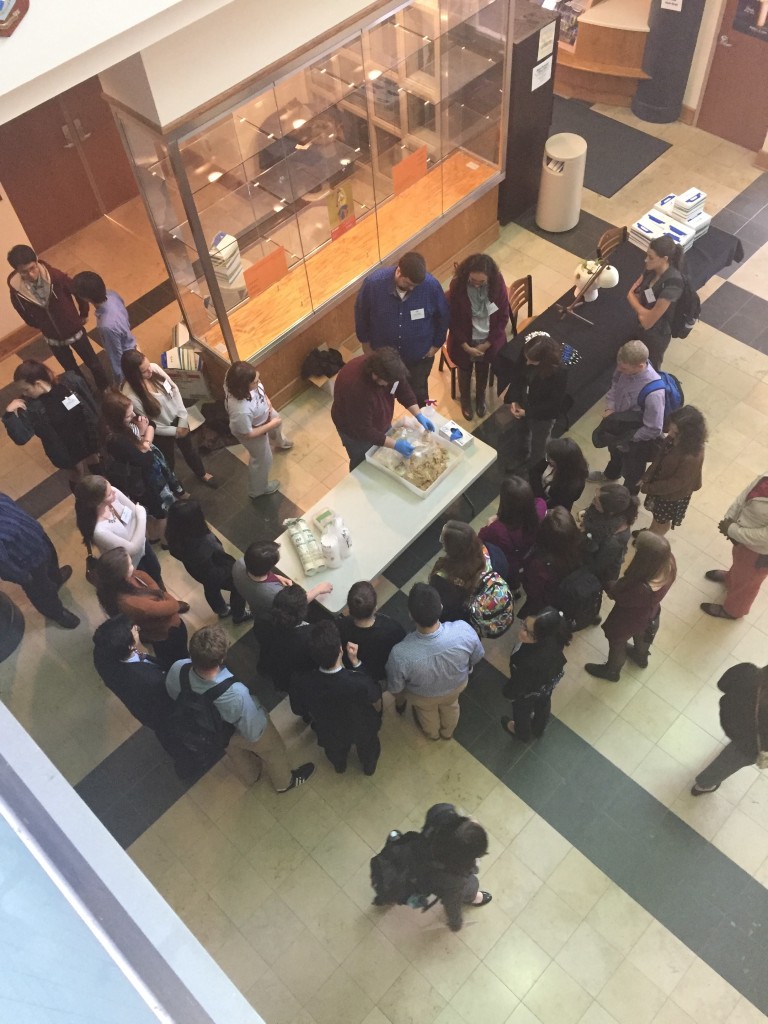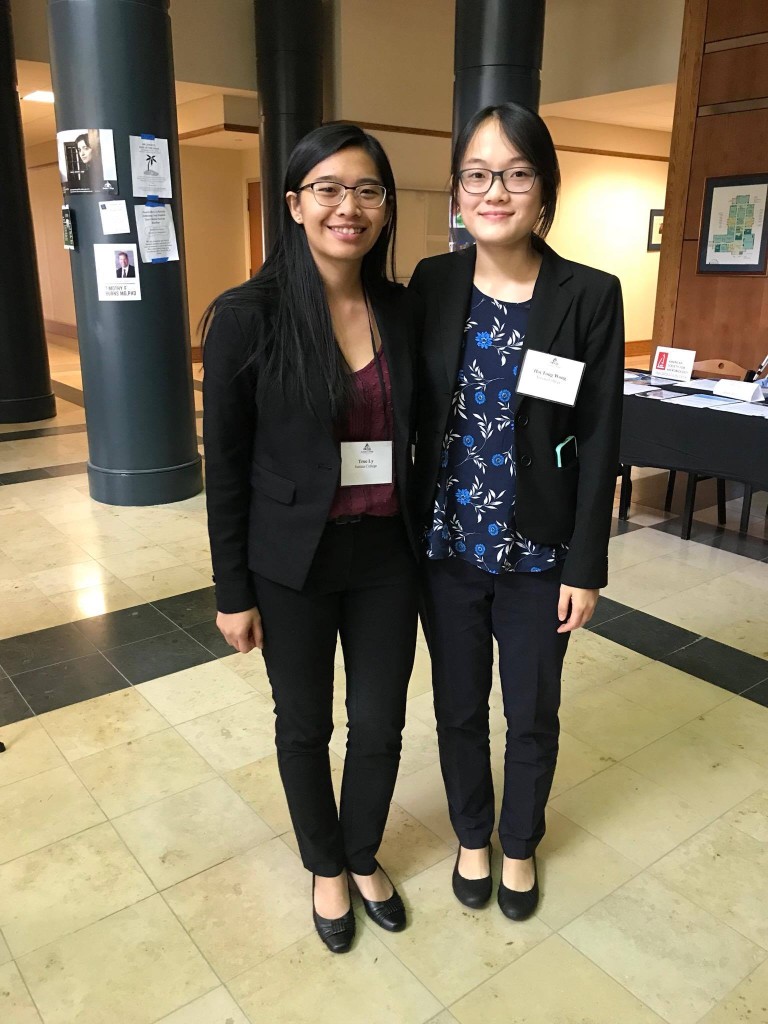Home » Posts tagged 'Juniata College Research'
Tag Archives: Juniata College Research
Recent Posts
Categories
ABASM: We Came for the Science and Stayed for the free T-shirt
This past weekend, several Juniata students had the opportunity to present their research at the Allegheny Branch of the American Society of Microbiology’s yearly conference. As a bonus the meeting was held right here at Juniata in the von Liebig Center for Science. The conference took place over the course of roughly thirty-six hours starting from early afternoon on Friday and ending early evening on Saturday. Over the course of those thirty-six hours students from nineteen institutions, both graduate and undergraduate, had the opportunity to learn about a diverse range of topics from distinguished speakers and from one another. There were several unique presentations over the two-day period. The first was a self-mentorship workshop where the speaker guided us through introspective searches into our deepest desires and goals which we later used to help craft a personal mission statement. The next day we participated in a workshop given by a Juniata alumnus that now works at Ecovative, a company that produces biodegradable packaging products with fungus. We even got to take some samples home with us! To close out the conference Juniata’s very own Dr. Belle Tuten, a history professor that specializes in medieval medicine, gave a talk on the methods by which doctors in medieval times used to treat wounds. The subject matter, which was quite humorous by itself, was made even more so by Dr. Tuten delivering her speech as if the medical practices of the past were perfectly reasonable methods for treating diseases.

While the workshops and speaker sessions were fun and educational, nothing compared to the student presentations. Although I presented this summer at the Landmark Conference at Susquehanna University, presenting at an actual society meeting had a much more significant feel to it. Sharing my hard work with a room full of people who were just as big or bigger science nerds than me was phenomenal and then being able to sit back down and learn about all the other awesome projects students were working on was just as exhilarating. This conference further affirmed by desire to go into research when I graduate from Juniata this May. I learned so many new things about tools like CRISPR and about how viruses affect fetal brain development, to cover just a few things. This conference increased my thirst for knowledge and understanding about the scientific world and made me that much more excited about graduate school next year.
Of course, none of this would have been possible without the constant support and mentoring by Dr. Regina Lamendella and Justin Wright and their lab. Without them I highly doubt that our lab would have done so well at the conference, and many of us that presented wouldn’t have had as high quality research to present on without their connections and collaborations. There are many labs that conduct undergraduate research on campus. Students can do research in almost every department on campus, and many students present this research at local, regional and national conferences, including the National Conference on Undergraduate Research and our very own Liberal Arts Symposium which we host every Spring.

From my experience, albeit limited, Juniata has one of the best programs for undergraduate research. Everyone is encouraged to participate and you can get involved as early as your freshmen year. All it takes is a little initiative, drive to succeed and no small amount of curiosity on your part. Even if you don’t think you’ll like research, I still encourage you to participate. You might find, like me, that you love research and the amazing sense of discovery that comes with it, and find it much more satisfying than being a doctor. Or you might not. It is better to try and not like it, then never try and miss out on an amazing opportunity. Not only that but if you do want to go to med school it looks good if you have done research.

I leave you with this: Research can be difficult. There are days where you will want to pull your hair out because your line of code just isn’t working or your organic reaction has failed for the twentieth time. If you get nothing else out of research, you will at least learn the ability to fail. Yes, the ability to fail. It is an art, one that I am still mastering. Sure, succeeding at everything you do feels great, but you don’t really learn anything from it. Failing teaches perseverance and creativity. Believe me, you do a lot of failing when you first start researching. You learn as you go and slowly, you improve. The quality of your work gets better as does the understanding of your project, and for me, my desire to learn more about what I was researching also increased. It is quite a journey but there is no better place to undertake that journey than Juniata.
